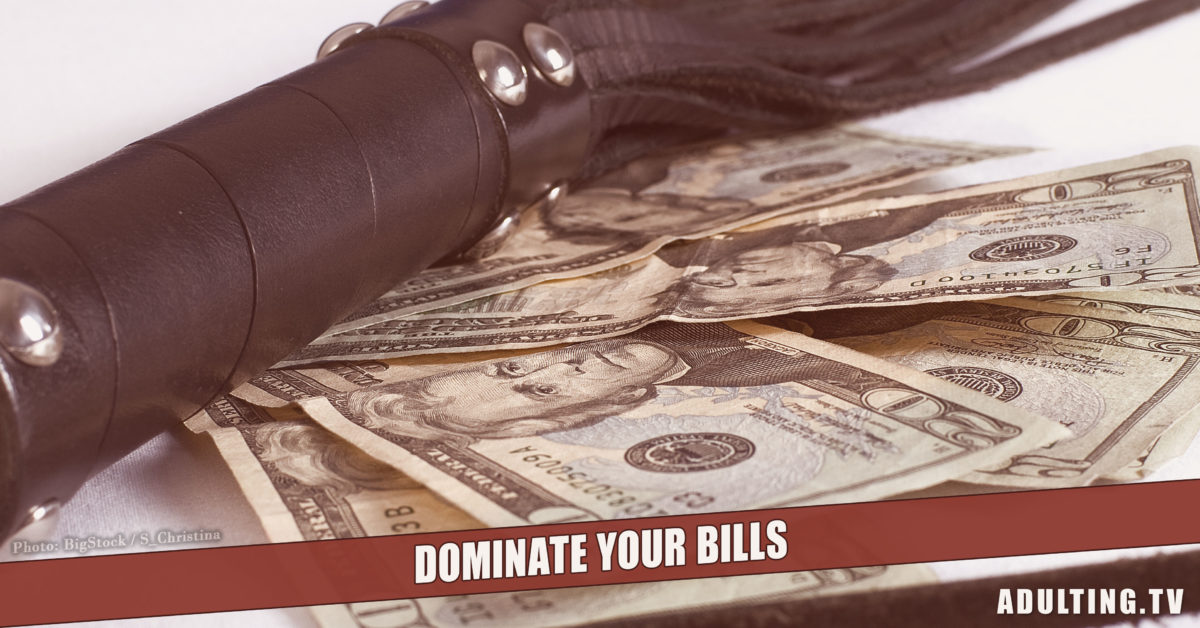Do you feel connected to your money?
One of my biggest fears is that apps will get in the way of my relationship to my money.
While apps like Mint make it easy to see where your money is going and get a handle on your finances, these apps aren’t everything.
In fact, they can get in the way of your relationship to your money. And that’s a problem. If you want to have the best results with your finances, you need to feel connected to your money.
Personal finance is hands-on.
One of the biggest problems I have with apps is the fact that you don’t really have to think about what you’re doing with your money.
Just sync up your account and check every now and again to see if you have the money available to make a purchase.
This approach doesn’t encourage you to think about what you’re spending your money on — or why you’re spending it. One of the biggest mistakes I made with money was spending without know my priorities.
When you’re connected to your money, you pay attention to the reasons behind your spending. If you step away from the app and track your spending manually, you develop a more intimate relationship with your finances.
And you know exactly what’s going on.
Even though I use personal finance software (Moneydance), I refuse to sync up it up with my accounts. Instead, I update everything manually. I go in there, receipts in hand, and log every purchase.
This forces me to confront the reality that sometimes the things I spend on don’t match my priorities or help me reach my goals. I spot problems faster — and can work to solve problems faster as a result.
Money is a tool.
Being connected to your money allows you to see it as a tool, rather than an end itself.
How many times have you lamented your lack of cash? I’ve been there. I know what it’s like to think that money is going to solve your problems.
The fact of the matter is that more money won’t change your habits. If you’re just looking at your app in despair, you’re not going to really get in there and tackle the underlying problems.
Look at money as a tool. It can help you do what you want.
With money, you can save for that vacation, plan for a truly golden retirement, and even provide for the security of your family.
Building that connection takes more than just looking at the cool graphs some app provides you. Instead, it’s about planning. You need to check in with your finances. Is your money plan working? Is it helping you reach your lifestyle goals?
Being connected to your money is about knowing what you have coming in, and being aware of how you direct those resources so that you are building something of value in your life.
What about automation?
Even though I’m not a fan of using apps to sync up my bank accounts, I am a fan of automated finances.
Rather than write check after check, I like setting my accounts up for automatic payments. My insurance, internet, and other bills are automatically taken care of. Hell, I even donate to charity using my credit card to make automatic payments.
When I first started automating everything, I wanted to make sure I didn’t end up becoming disconnected from my money. So I make it a point to manually enter purchases into my personal finance software. I also reconcile my accounts every month.
Many people think that they don’t need to reconcile their accounts each month. After all, thanks to online banking, it’s possible to look at all of your account each day if you want. You can look at what’s cleared and catch fraudulent charges quickly.
However, I like reconciling my accounts. It forces me to review all of my spending again and look at patterns. When I reconcile an account, it means that I have to stay connected — even though I automate my finances for the most part.
You don’t have to give up your apps.
Of course, you don’t have to give up your apps to remain connected to your money.
There are plenty of ways to stay connected to your finances, no matter how you choose to manage your money. Here are some things you should do on a regular basis to ensure that you and your money maintain a strong relationship:
- Review your spending regularly. Don’t just glance at a graph or get your information from an app. At least once a month really dig in there. Look at some of the individual purchases you make. Do those things match your priorities? Are you starting to drift into “wasting money” territory?
- Review your investments. From your retirement account to any sort of taxable investment account, you should regularly check in with your returns. Does what you’re setting aside still make sense for your goals? Have you seen an increase in income that means you should be investing more?
- Create a long-term financial plan. Put together a long-term financial plan that looks at your finances holistically. Pay attention to where you are now, and use your life map to hone in on your priorities. Create a long-term financial plan that takes into account your goals and lifestyle requirements.
- Make adjustments as needed. It’s not just about making a plan and then forgetting about it. You should revisit your long-term plan at least once a year and make adjustments as needed. Life changes you. Your goals change. You need to change things up.
Remember: your money works for you. However, if you aren’t paying attention and if you aren’t connected to your money, it won’t do you any good. Pretty soon, you’ll find you’re a slave to your finances.
There are plenty of great financial tools that can help you move forward in life. From apps to automatic payments, you can use these tools to streamline your finances.
But you can’t let them come between you and your money.






